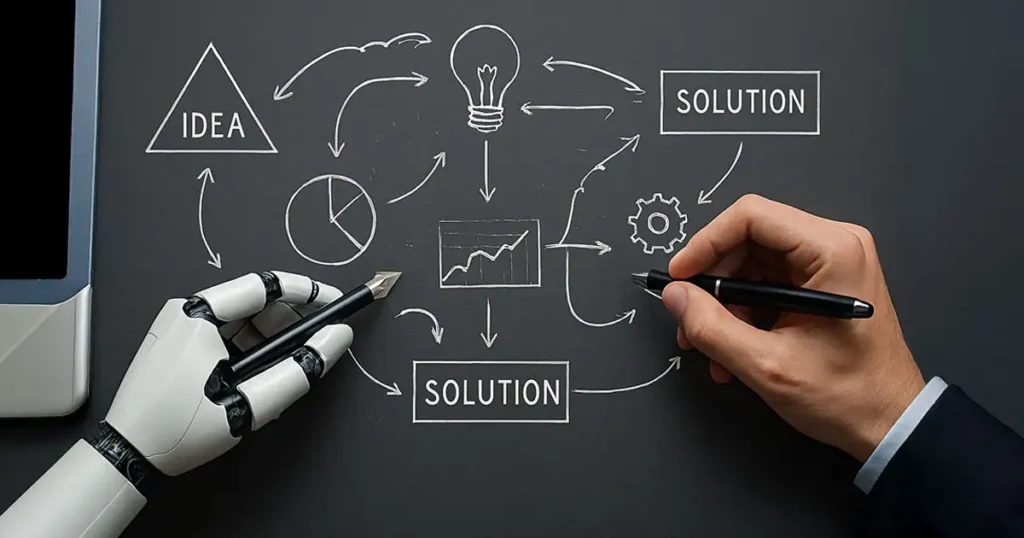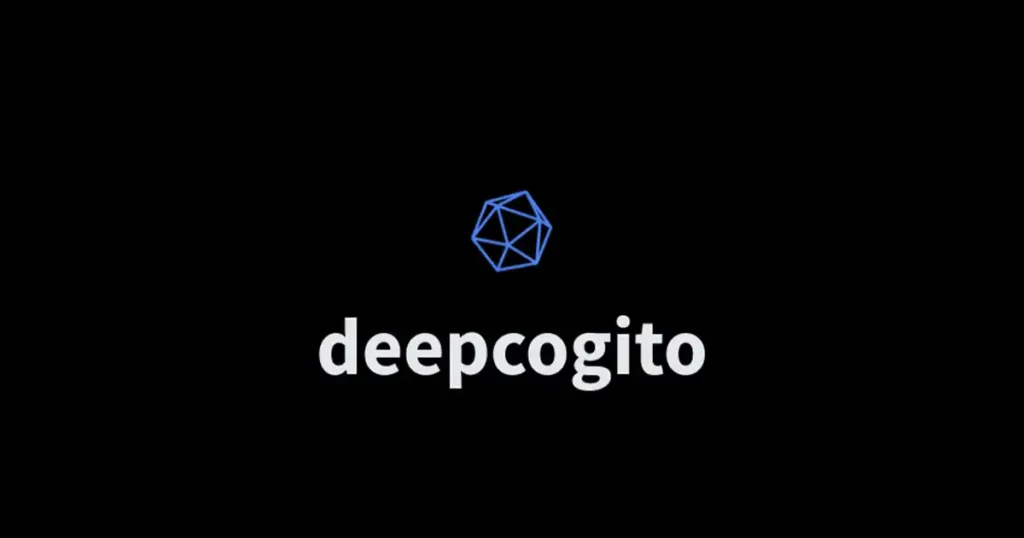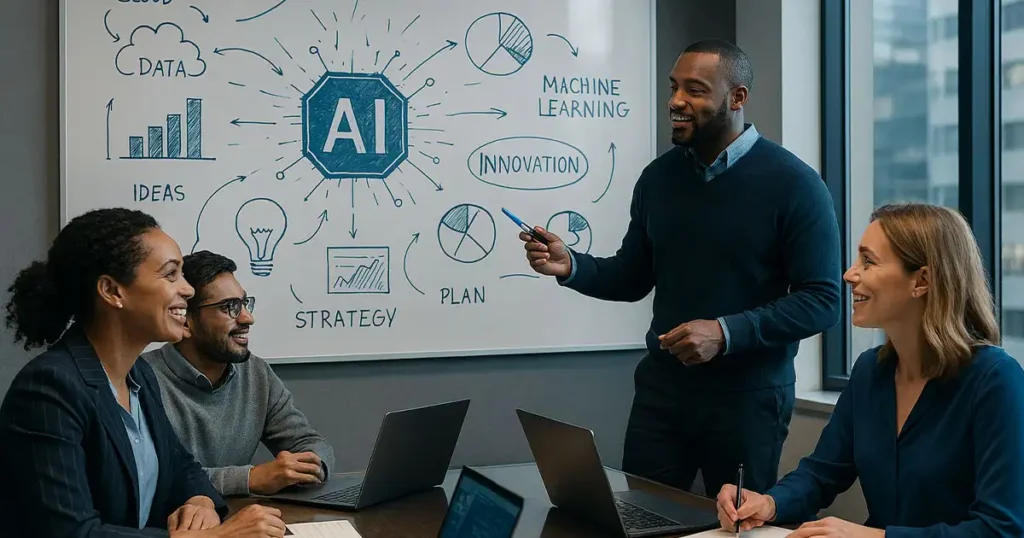
Contents
- Introduction: The Hidden Crisis Behind AI’s Golden Promise
- Core Challenge: The Human Skills Deficit in AI Implementation
- Target Impact: Who Needs Human Skills in AI Era Development
- Strategic and Ethical Significance: Beyond Technology Acquisition
- Innovation Spotlight: Deep Cogito v2’s Human-Centric Approach
- Expert Insights and Implementation Strategies
- Future Outlook: Nurturing Human Intelligence Alongside Artificial Intelligence
Introduction: The Hidden Crisis Behind AI’s Golden Promise
Human skills in AI era are becoming more critical than ever, even as the artificial intelligence revolution arrives with unprecedented fanfare, transforming industries from healthcare to creative design.
Every business leader either has AI, is buying AI, or is afraid of being left behind. With companies investing millions in AI tools and predictions of £736 billion economic injection into the UK economy alone, the enthusiasm seems justified.
Yet beneath this technological euphoria lies a quieter, more troubling narrative emerging from leading institutions like MIT and Multiverse. The obsession with AI advancement may be creating an unexpected paradox: our over-reliance on artificial intelligence is eroding the very human skills needed to use it effectively.
This human skills deficit threatens not just individual careers but the successful adoption of AI across entire industries, potentially undermining the economic growth these investments promise.

Core Challenge: The Human Skills Deficit in AI Implementation
The Investment Misalignment Problem
Gary Eimerman, Chief Learning Officer at Multiverse, identifies the fundamental issue: “Leaders are spending millions on AI tools, but their investment focus isn’t going to succeed. They think it’s a technology problem when it’s really a human and technology problem.”
This misalignment reveals itself in several critical ways:
- Technological Over-Investment: Companies pour resources into sophisticated AI platforms while neglecting human capability development
- Skills Gap Widening: The difference between casual AI users and power users isn’t about perfect prompts—it’s about thinking, reasoning, and reflecting
- Productivity Paradox: Despite advanced tools, many organizations fail to realize expected productivity gains
The Power User Distinction
True AI mastery requires developing human skills in AI era applications that go far beyond basic prompt engineering:
Analytical Reasoning Skills:
- Breaking complex problems into AI-manageable components
- Recognizing when tasks are inappropriate for machine processing
- Maintaining pilot authority rather than passenger dependency
Creative Experimentation:
- Finding genuinely innovative applications beyond incremental improvements
- Driving breakthrough innovations rather than producing better copies
- Challenging conventional AI usage patterns
Target Impact: Who Needs Human Skills in AI Era Development
Primary Beneficiaries
Business Leaders and Executives
- Need strategic oversight capabilities for AI investment decisions
- Require ethical framework development for responsible AI deployment
- Must balance technological advancement with human capital development
Knowledge Workers and Professionals
- Benefit from enhanced analytical reasoning for complex problem-solving
- Need creative skills to maximize AI tool potential
- Require verification and oversight capabilities for AI-generated outputs
Organizations Across Industries
- Healthcare systems requiring human oversight of AI diagnostics
- Creative agencies balancing AI assistance with human creativity
- Financial institutions needing ethical AI decision-making frameworks
The Accessibility Revolution
Developing human skills in AI era democratizes AI’s potential by ensuring that technological advancement doesn’t create a two-tiered workforce of AI-savvy power users versus button-pushing operators.
This approach makes sophisticated AI capabilities accessible to professionals regardless of technical background, provided they cultivate essential human competencies.
Strategic and Ethical Significance: Beyond Technology Acquisition
Character Traits for AI Success
The most successful AI integrators possess specific personal characteristics that technology alone cannot provide:
Determination and Patience
- Sheer persistence when AI produces suboptimal results
- Understanding that first-time AI success is rare
- Willingness to iterate and refine approaches
Curiosity and Verification
- Deep-seated drive to fact-check AI outputs with personal expertise
- Commitment to output verification before implementation
- Experimental mindset that challenges rather than accepts first answers
Adaptability and Resilience
- Recognition that AI doesn’t always deliver immediate accuracy
- Flexibility to adjust strategies based on AI limitations
- Resilience to persist through technological frustrations
Ethical Oversight Framework
Power users distinguish themselves through rigorous ethical oversight and output verification. This includes:
- Questioning AI recommendations against moral and practical standards
- Implementing verification protocols for AI-generated content
- Maintaining human accountability for AI-assisted decisions
Innovation Spotlight: Deep Cogito v2’s Human-Centric Approach
Recent developments in AI reasoning capabilities, exemplified by Deep Cogito v2, demonstrate how human skills in AI era development can enhance rather than replace human intelligence.

Key Innovation Features:
- Internalized reasoning processes using Iterated Distillation and Amplification (IDA)
- 60% shorter reasoning chains compared to competitors
- Emergent multimodal reasoning capabilities developed through transfer learning
- Cost-effective development at under $3.5 million versus industry standards
Open-Source Commitment: Deep Cogito’s dedication to open-source development reflects a human-centric philosophy that prioritizes collaborative advancement over proprietary control.
This approach demonstrates how human skills in AI era thinking—creativity, ethical consideration, and collaborative problem-solving—drives the most significant technological breakthroughs.
Expert Insights and Implementation Strategies
Industry Testimonials
“The real competitive advantage isn’t the AI itself. It’s the people who know how to get the best out of it.” – Industry Analysis on AI Implementation Success
“If we invest only in the machine and not in ourselves, we risk creating a generation of button pushers instead of problem solvers.” – Workplace AI Integration Report

Practical Implementation Framework
For Organizations:
- Rebalance Investment Strategies – Allocate resources between technology acquisition and human skill development
- Implement Human-Centric Training – Focus on analytical reasoning, creative experimentation, and ethical oversight
- Cultivate Power User Culture – Reward curiosity, patience, and critical thinking over rapid AI adoption
For Individuals:
- Develop Analytical Frameworks – Practice breaking complex problems into AI-appropriate components
- Enhance Creative Capabilities – Experiment with novel AI applications rather than conventional uses
- Build Verification Habits – Always fact-check and ethically evaluate AI outputs
Future Outlook: Nurturing Human Intelligence Alongside Artificial Intelligence
The path forward requires recognizing that human skills in AI era development isn’t about competing with artificial intelligence—it’s about creating synergistic partnerships that leverage both human creativity and machine capability.
The future belongs to professionals who:
- Ask the right questions, regardless of how sophisticated the AI answers become
- Maintain critical thinking skills that prevent over-dependence on automated solutions
- Develop ethical frameworks that guide responsible AI implementation
Call to Action: Organizations must shift from viewing AI as a replacement solution to embracing it as an amplification tool that requires skilled human operators.
The competitive advantage of tomorrow won’t come from having the most advanced AI—it will come from having the most skilled humans who know how to maximize AI’s potential while preserving their irreplaceable human edge.
Remember: If we forget how to ask the right questions, it won’t matter how good the answers are.